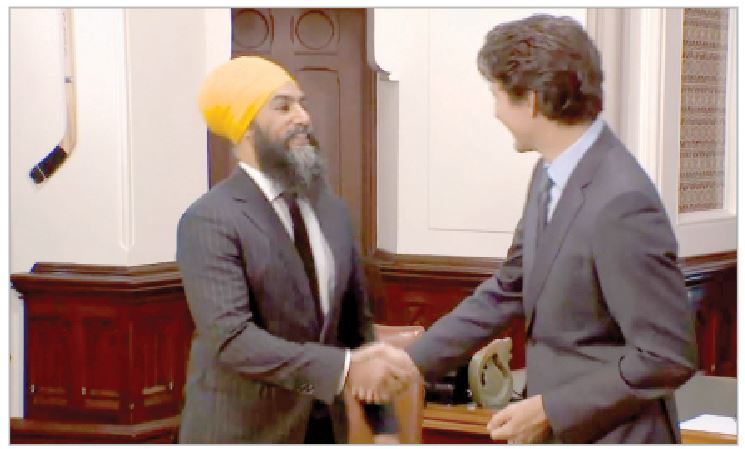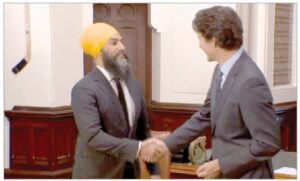After China, India: Trudeau isolates Canada
TORONTO – After China, India. The government led by Justin Trudeau continues its “work” of international self-isolation of Canada.
On Monday, Trudeau himself in Parliament spoke of unspecified “credible evidence” according to which the government of India is linked to the assassination of Hardeep Singh Nijjar, a Canadian citizen and well-known activist of the Sikh independence movement, shot dead of a gun last June 18 outside a cultural center of this Indian religion – which involves around 40 million believers worldwide – in Surrey, a suburb of Vancouver, British Columbia. “Any involvement of a foreign government in the killing of a Canadian citizen on Canadian soil is an unacceptable violation of our sovereignty. It is contrary to the fundamental rules by which free, open and democratic societies behave,” Trudeau said.
The Indian government has denied any involvement in Nijjar’s murder, also stating that Canada is trying to shift attention away from Khalistan “sympathizers” who number more than 770,000 people in Canada (out of a total of 1.8 million Indians “Canadians”), including quite a few activists who are calling for the independence of Punjab, the Indian state with a Sikh majority, and the creation of a new state: Khalistan.
Today, India responded to Canada: the Indian Ministry of External Affairs announced that a senior Canadian diplomat has been asked to leave India within the next five days. “The decision reflects the Government of India’s growing concern over interference by Canadian diplomats in our internal matters,” the Indian ministry said.
Canada’s Foreign Minister, Melanie Joly, also announced that Canada is expelling the Indian Pavan Kumar Rai, listed as a diplomatic agent at the head of an Indian intelligence agency based in Ottawa.
Although leaders of the Sikh community in Canada have insisted on Indian government involvement, police have previously said they have made no connection to foreign interference. “Unfounded” accusations, therefore, according to the Indian government, which “try to shift attention away from Khalistani terrorists and extremists, who have been offered refuge in Canada and who continue to threaten the sovereignty and territorial integrity of India”, says the Indian Ministry of External Affairs.
India has long argued that these activists undermine national security, even as Canada insists that its citizens must have freedom of speech if they do not incite violence.
In reality, Trudeau has another problem: among the many Canadian Sikhs there is one to whom he owes the maintenance of his shaky position as Prime Minister. We are talking about Jagmeet Singh, leader of the opposition New Democratic Party: with his external support to Trudeau’s government, he is guaranteeing it a majority and therefore its survival despite the total dislike of the now vast majority of the Canadian population, as all the latest say surveys.
Result: relations between Canada and India are at a new historic low, as are those with China. Which one will be the next “enemy” country of Trudeau’s Canada?
In the pic above, the handshake between Trudeau and Singh on the occasion of their agreement on the federal government (photo from YouTube – @cpac)




